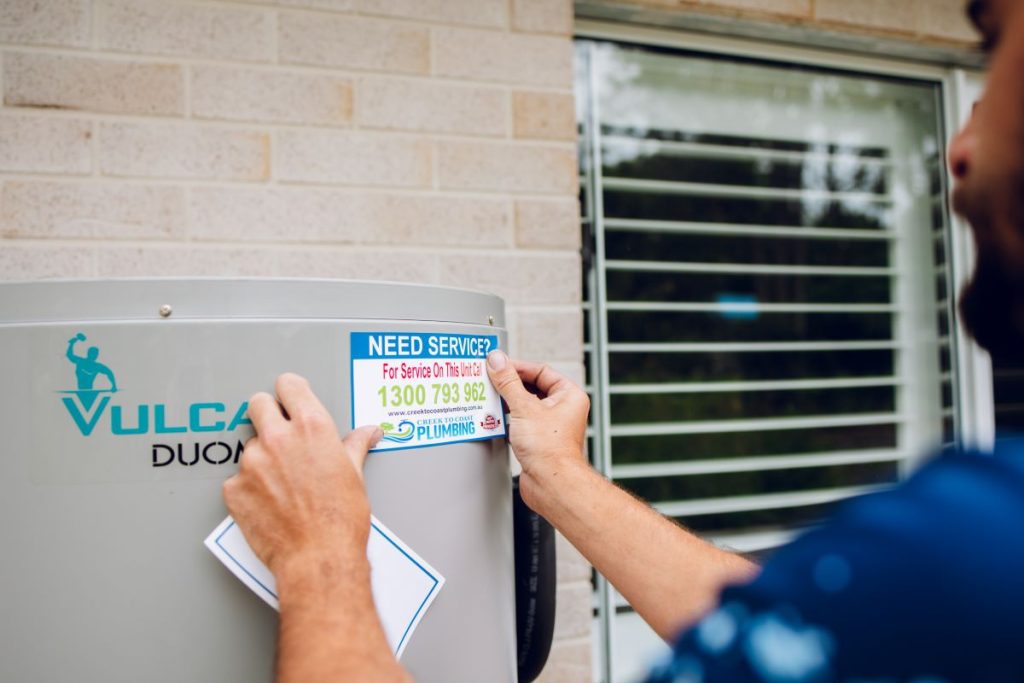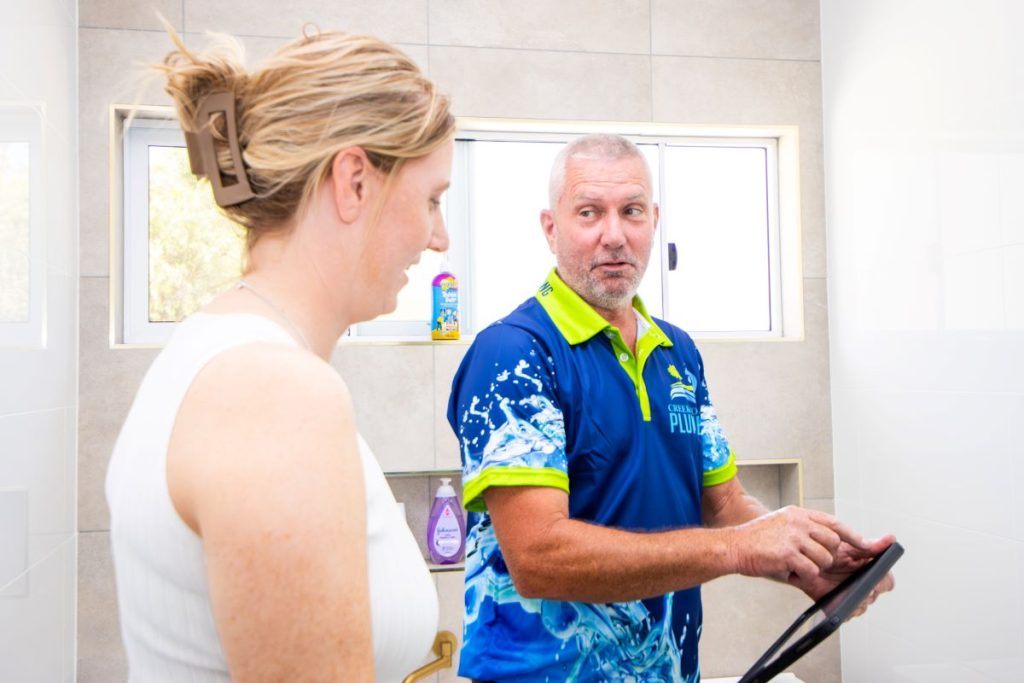Hot water systems are essential components of your home, tirelessly working behind the scenes to ensure you have access to hot water whenever you need it. Like all household appliances, these systems eventually reach their operational limits. Being able to identify the signs that indicate it's time for a replacement can help you avoid unpleasant situations, such as unexpectedly experiencing cold showers, facing potential water damage, and incurring costly emergency repairs that could disrupt your daily life.
What is the expected lifespan of your hot water system? The durability of these systems can vary widely, depending on the type you have and the level of maintenance it receives. By conducting regular inspections and providing proper care, you can significantly prolong the lifespan of your hot water system and ensure it operates at peak efficiency.
Let’s take a closer look at the specifics to give you a clearer understanding.

Understanding the Lifespan and Performance of Various Hot Water Systems
Here’s what you can generally expect regarding the lifespan and overall performance of the most common hot water systems utilized in Queensland homes:
Electric Storage Hot Water Systems
- Lifespan: 8–12 years
- Reasons for Failure: Frequent issues include internal corrosion, expired anode rods, and sediment accumulation which can compromise the system's performance.
- Signs to Monitor: Stay alert for rusty or discolored water, leaks at the base of the unit, or prolonged heating times, which may suggest underlying problems needing attention.
Gas Storage Hot Water Systems
- Lifespan: 8–12 years
- Reasons for Failure: Similar to electric models, these systems may face similar issues but can fail sooner, especially if exposed to salty coastal air.
- Signs to Monitor: Watch for pilot light issues, lower water temperatures, or unexpectedly high gas bills, which can indicate inefficiency in operation.
Instant Gas Hot Water Systems (Continuous Flow)
- Lifespan: 10–15 years
- Reasons for Longevity: The absence of a storage tank in these systems significantly reduces the risk of corrosion, which can lead to failures over time.
- Signs to Monitor: Be vigilant for inconsistent water temperatures, ignition problems, or a noticeable drop in water flow rate, as these can indicate a need for servicing.
Electric Instant Hot Water Systems
- Lifespan: 10–15 years
- Common Issues: Failures often arise from malfunctioning heating elements or thermostats, which can hinder overall performance.
- Warning Signs: Be on the lookout for water that fluctuates between hot and cold or takes longer than usual to heat, as these can signify underlying problems requiring attention.
Heat Pump Hot Water Systems
- Lifespan: 10–15 years
- Efficiency: These systems are known for their high energy efficiency; however, they may be sensitive to the climate and their installation environment, which can affect performance.
- Signs of Trouble: Be aware of signs such as louder-than-normal operation, extended heating cycles, or rising energy costs, indicating a need for professional inspection.
Solar Hot Water Systems
- Lifespan: 15–20+ years for solar panels, 8–12 years for the storage tank
- Note: Typically, the storage tanks may wear out before the solar collectors, which can impact overall system effectiveness.
- Signs to Monitor: Stay alert if your water fails to heat on cloudy days or if you notice rusty water or issues with booster operations.

Identifying the Warning Signs That Your Hot Water System is Failing
Even before your hot water system reaches its expected lifespan, it may begin to show warning signs indicating it is under stress. These concerning indicators can include:
- Fluctuating Temperatures
If your water takes longer to heat or runs out more quickly than it used to, it may be time to investigate the situation further. - Rusty or Discolored Water
This often points to corrosion within the tank or a failing anode rod, both of which require immediate attention to prevent further damage and costly repairs. - Unusual Noises
Popping, gurgling, or banging noises during the heating cycle frequently signal sediment buildup inside the tank, which can severely affect efficiency. - Leaks or Pooling Water
Even a slight drip can indicate your tank may be cracking or that the valves are beginning to fail, necessitating prompt inspection to avert more significant issues. - Higher Energy Bills
An aging unit often struggles to produce the same amount of hot water, compelling it to work harder and resulting in increased energy costs that can affect your monthly budget.
Understanding How Seasonal Changes Affect Hot Water System Performance
In Queensland, the transition from warmer to cooler months can create significant challenges for older hot water systems. As outdoor temperatures drop, these systems must work harder to maintain the desired water temperature, and those nearing the end of their lifespan may experience complete failures during this crucial period.
Assessing the Right Time for Hot Water System Replacement
If your system displays any of the following characteristics, it may be time to consider a replacement:
- Over 10 years old
- Frequently experiencing breakdowns
- Failing to meet your household’s hot water requirements
- Exhibiting visible signs of wear or corrosion
If you identify these indicators, it could be the appropriate moment for an upgrade.
At Creek to Coast Plumbing, we don't simply replace your hot water unit; we also evaluate various factors such as your family size, water usage habits, energy preferences, and the layout of your property. This allows us to recommend the most efficient and cost-effective hot water system tailored to your specific needs.

Making an Informed Decision: Selecting the Ideal Hot Water System for Your Household
Based on your specific needs and the requirements of your household, our expert team may recommend:
- Electric or Gas Storage systems for their reliability and cost-effectiveness, making them suitable for traditional homes.
- Continuous Flow (Instant) systems that are ideal for smaller homes or households with lower hot water consumption, ensuring efficient use.
- Heat Pumps that provide substantial energy savings, particularly advantageous in warmer climates where efficiency is key.
- Solar Hot Water systems designed for long-term cost savings and environmental sustainability, promoting a greener lifestyle and reducing your carbon footprint.
Additionally, we evaluate whether the current location of your hot water system is optimal or if relocating it could enhance performance and overall efficiency, tailoring our solutions to your unique setup.
Seize the Opportunity for a Hot Water System Upgrade
Replacing your hot water system at the right time is not only about preventing system failure; it also offers the chance to upgrade to a more reliable, energy-efficient model that better aligns with your lifestyle and needs.
If your unit is exhibiting signs of aging or if you're unsure about which system would be the best fit for your home, the licensed plumbers at Creek to Coast Plumbing are here to provide you with expert assistance tailored to your situation, ensuring you're fully informed every step of the way.
The Article: Hot Water System Lifespan: A Guide for Queensland Homes first appeared on https://writebuff.com
The Article Hot Water System Lifespan Guide for Queensland Homes Was Found On https://limitsofstrategy.com

